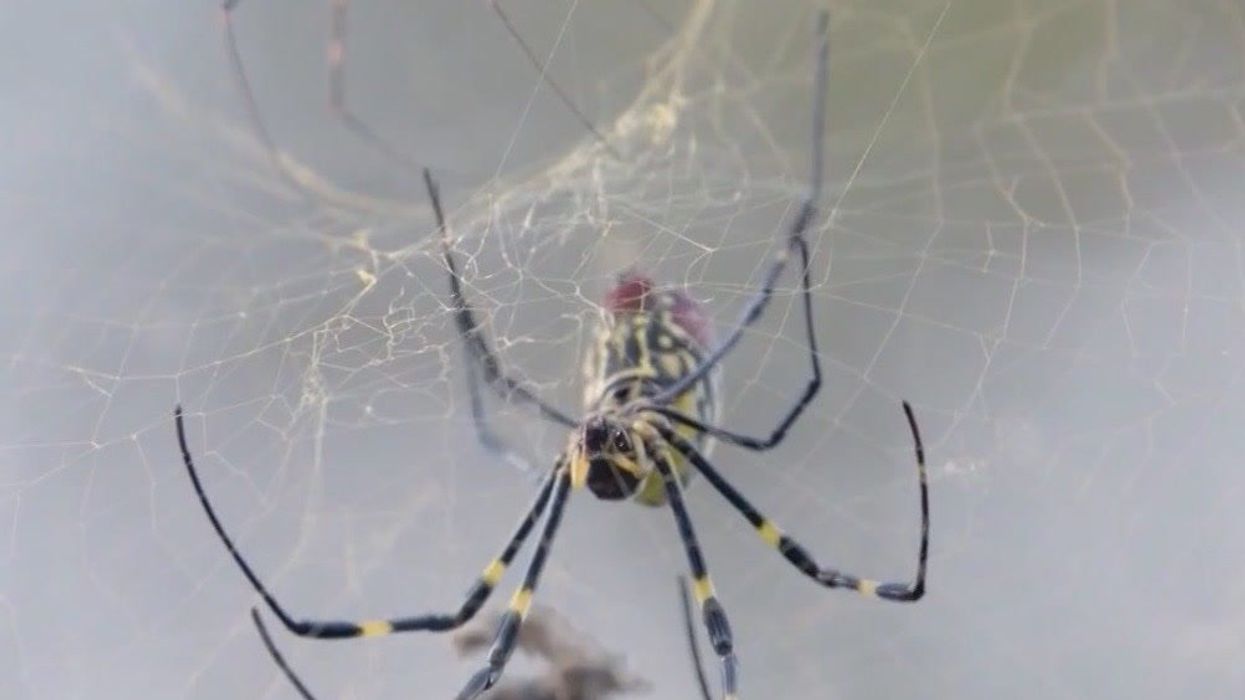Catherine Shuttleworth
Feb 22, 2024
Joro spiders expected to come to NY
Fox - 5 NY / VideoElephant
Giant, invasive Jorō spiders are appearing to thrive in the U.S., helping them takeover major cities along the Eastern Seaboard.
In the last decades, Jorō spiders have spread across several U.S. states. The species of orb-weaving spiders are easily recognisable due to the distinctive yellow bands on their black legs. Female Jorōs can grow to around 3 inches across, making them roughly double the size of males.
Mating season for Jorō spiders occurs in early autumn, with female Jorōs laying web-bound clusters of up to 400 eggs. When the eggs hatch in spring, the baby spiders create parachute-like webs that enable them to fly up to 100 miles away from where they were born.
Until recently, Jorō spiders were only found in Japan, Korea, Taiwan, and China. But in 2014, researchers spotted several Jorōs in the U.S., specifically near Atlanta, Georgia. A 2015 study has suggested the were brought to the U.S. inside a shipping container.
Since then, Jorō spiders have multiplied and spread in the U.S. quickly, due to their ability to disperse after birth. Within the U.S. they are commonly found across South Carolina, North Carolina, Tennessee, Alabama, Maryland, Oklahoma and West Virginia.
Now experts believe they could spread across the entire East Coast in the future.
Although previously believed that high vibration in urban areas, especially near motorways, could interfere with spiders' ability to hunt, a new study actually showed that the vibrations were not impacting Jorōs in the long term.
"The spiders seem to be able to make a living there," lead study author Andy Davis, an ecologist at the University of Georgia, said in a statement. They are surprisingly "urban tolerant," he added.
Without a natural predator seeking Jorōs out, their numbers will likely continue to rise, which could help them outcompete other species for resources. Although they are typically non-agressive toward other spiders.
Regardless, it looks like they are here to stay.
"I don't know how happy people are going to be about it, but I think the spiders are here to stay," study co-author Alexa Schultz, a third-year ecology student at the University of Georgia, said in the statement. And they could end up in places "where you wouldn’t imagine a spider to be," she added.
Sign up to our free Indy100 weekly newsletter
Have your say in our news democracy. Click the upvote icon at the top of the page to help raise this article through the indy100 rankings.
How to join the indy100's free WhatsApp channel
Top 100
The Conversation (0)














